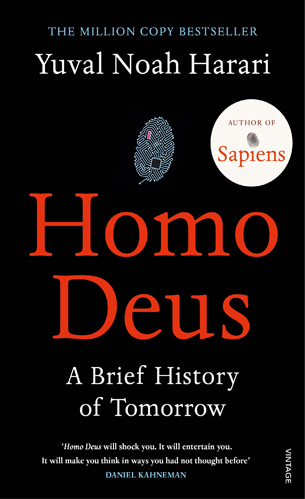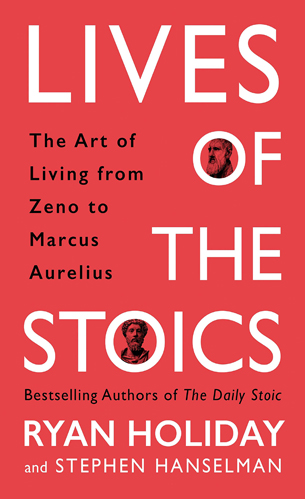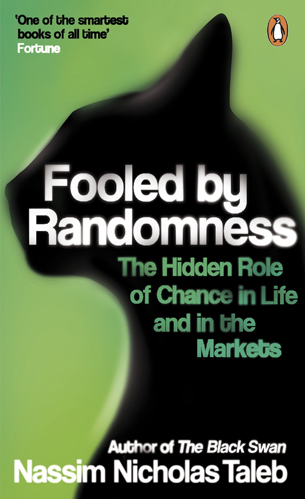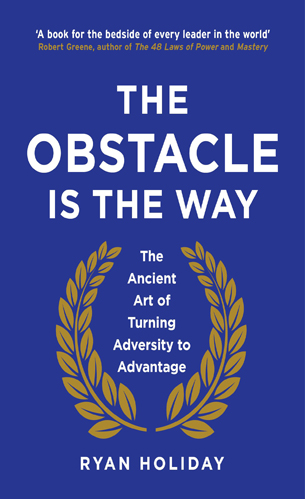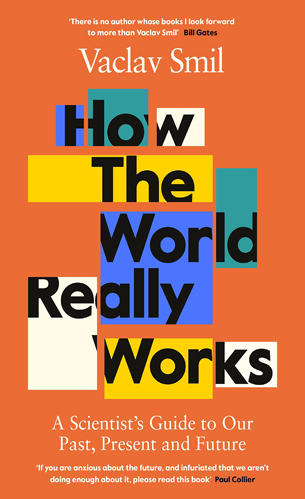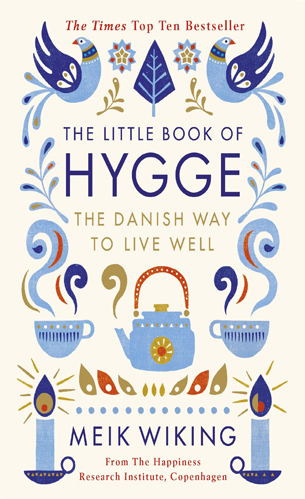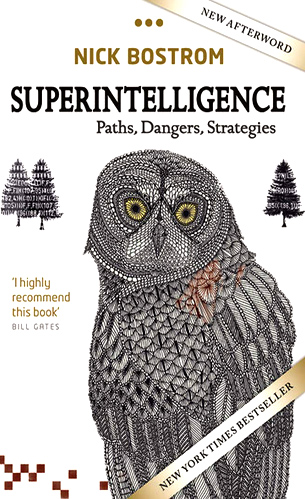Category
- Discounted Books
- English Book Bundles
- University Magazines
- சிறுவர்களுக்கான புத்தகங்கள்
- Children Books
- English Books
- Current Affairs
- Military & Intelligence
- Short Stories
- Fiction
- Poetry
- Environment & Nature
- Science
- Medicine
- Linguistics
- Atheism & Agnosticism
- (Auto)Biography & Memoir
- Business & Management
- Creativity
- Economics
- Education & Research
- Health & Nutrition
- History
- Humor
- Love & Relationships
- Parenting
- Personal Development
- Personal Finance
- Philosophy
- Politics
- War
- Psychology
- Religion & Spirituality
- Society & Culture
- Sports
- Travel & Adventure
- Technology & the Future
- True Crime
- Women Empowerment
- தமிழ் Books
- Book Bundles ( தமிழ் )
- சட்டம்
- இயற்கை
- கட்டுரை
- கணிதம்
- பயணக்குறிப்புகள்
- விவசாயம்
- அரசியல்
- ஆரோக்கியம்
- உளவியல்
- புனைவு
- காதல் மற்றும் உறவு
- சமூகவியல்
- சுயசரிதைகள் மற்றும் நினைவுகள்
- சுயமுன்னேற்றம்
- தத்துவஞானம்
- தொழில்நுட்பம் & எதிர்காலம்
- பொருளாதாரம்
- போர்
- பணம்
- மதம் & ஆன்மீகம்
- வணிகம் & மேலாண்மை
- வரலாறு
- விஞ்ஞானம் & பிரபல அறிவியல்
- விளையாட்டு
- சினிமா
- கவிதைகள்
- குழந்தை வளர்ப்பு
- குற்றம்
- மருத்துவம்
- மொழி
Product categories
- Children Books
- Discounted Books
- English Book Bundles
- English Books
- (Auto)Biography & Memoir
- Atheism & Agnosticism
- Business & Management
- Creativity
- Current Affairs
- Economics
- Education & Research
- Environment & Nature
- Fiction
- Health & Nutrition
- History
- Humor
- Linguistics
- Love & Relationships
- Medicine
- Military & Intelligence
- Parenting
- Personal Development
- Personal Finance
- Philosophy
- Poetry
- Politics
- Psychology
- Religion & Spirituality
- Science
- Short Stories
- Society & Culture
- Sports
- Technology & the Future
- Travel & Adventure
- True Crime
- War
- Women Empowerment
- University Magazines
- சிறுவர்களுக்கான புத்தகங்கள்
- தமிழ் Books
- Book Bundles ( தமிழ் )
- அரசியல்
- ஆரோக்கியம்
- இயற்கை
- உளவியல்
- கட்டுரை
- கணிதம்
- கவிதைகள்
- காதல் மற்றும் உறவு
- குற்றம்
- குழந்தை வளர்ப்பு
- சட்டம்
- சமூகவியல்
- சினிமா
- சுயசரிதைகள் மற்றும் நினைவுகள்
- சுயமுன்னேற்றம்
- தத்துவஞானம்
- தொழில்நுட்பம் & எதிர்காலம்
- பணம்
- பயணக்குறிப்புகள்
- புனைவு
- பொருளாதாரம்
- போர்
- மதம் & ஆன்மீகம்
- மருத்துவம்
- மொழி
- வணிகம் & மேலாண்மை
- வரலாறு
- விஞ்ஞானம் & பிரபல அறிவியல்
- விளையாட்டு
- விவசாயம்
Homo Deus: A Brief History of Tomorrow
Rs. 3,290.00

Yuval Noah Harari
**THE MILLION COPY BESTSELLER**
NEW YORK TIMES BESTSELLER
Wellcome Book Prize Nominee for Longlist (2017)
“Homo Deus will shock you. It will entertain you. Above all, it will make you think in ways you had not thought before.” — Daniel Kahneman, author of Thinking Fast, and Slow
“Thrilling to watch such a talented author trample so freely across so many disciplines… Harari’s skill lies in the way he tilts the prism in all these fields and looks at the world in different ways, providing fresh angles on what we thought we knew… scintillating.” — Financial Times
“Spellbinding… This is a very intelligent book, full of sharp insights and mordant wit… It is a quirky and cool book, with a sliver of ice at its heart… It is hard to imagine anyone could read this book without getting an occasional, vertiginous thrill.” — Guardian
“Harari is an intellectual magpie who has plucked theories and data from many disciplines – including philosophy, theology, computer science and biology – to produce a brilliantly original, thought-provoking and important study of where mankind is heading.” — Evening Standard (London)
“I enjoyed reading about these topics not from another futurist but from a historian, contextualizing our current ways of thinking amid humanity’s long march–especially…with Harari’s ability to capsulize big ideas memorably and mingle them with a light, dry humor…Harari offers not just history lessons but a meta-history lesson.” — Washington Post
“What elevates Harari above many chroniclers of our age is his exceptional clarity and focus.” — London Sunday Times
“A remarkable book, full of insights and thoughtful reinterpretations of what we thought we knew about ourselves and our history.” — The Guardian
“Provocative…the handiwork of a gifted thinker.” — Jennifer Senior, New York Times
“[A] great book…not only alters the way you see the world after you’ve read it, it also casts the past in a different light. In Homo Deus, Yuval Noah Harari shows us where mankind is headed in an absolutely clear-sighted & accessible manner.” — Mail on Sunday
Only 2 left in stock
Yuval Noah Harari, author of the critically-acclaimed New York Times bestseller and international phenomenon Sapiens, returns with an equally original, compelling, and provocative book, turning his focus toward humanity’s future, and our quest to upgrade humans into gods.
Over the past century humankind has managed to do the impossible and rein in famine, plague, and war. This may seem hard to accept, but, as Harari explains in his trademark style—thorough, yet riveting—famine, plague and war have been transformed from incomprehensible and uncontrollable forces of nature into manageable challenges. For the first time ever, more people die from eating too much than from eating too little; more people die from old age than from infectious diseases; and more people commit suicide than are killed by soldiers, terrorists and criminals put together. The average American is a thousand times more likely to die from binging at McDonalds than from being blown up by Al Qaeda.
What then will replace famine, plague, and war at the top of the human agenda? As the self-made gods of planet earth, what destinies will we set ourselves, and which quests will we undertake? Homo Deus explores the projects, dreams and nightmares that will shape the twenty-first century—from overcoming death to creating artificial life. It asks the fundamental questions: Where do we go from here? And how will we protect this fragile world from our own destructive powers? This is the next stage of evolution. This is Homo Deus.
With the same insight and clarity that made Sapiens an international hit and a New York Times bestseller, Harari maps out our future.
About the Author
Prof Yuval Noah Harari has a PhD in History from the University of Oxford and now lectures at the Hebrew University of Jerusalem, specialising in World History. Sapiens: A Brief History of Humankind has become an international phenomenon attracting a legion of fans from Bill Gates and Barack Obama to Chris Evans and Jarvis Cocker, and is published in 65 languages worldwide. It was a Sunday Times Number One bestseller and was in the Top Ten for over nine months in paperback. His follow-up to Sapiens, Homo Deus: A Brief History of Tomorrow was also a Top Ten Bestseller and was described by the Guardian as ‘even more readable, even more important, than his excellent Sapiens‘. 21 Lessons for the 21st Century, was a Number One Bestseller and was described by Bill Gates as ‘fascinating’ and ‘crucial’.
Book Specifications
Title: Homo Deus: A Brief History of Tomorrow
Author: Yuval Noah Harari
Language: English
Binding: Paperback
Pages: 528
Weight: 452g
Published Year: 2015
Publisher: Vintage Books
ISBN: 9781784703936
Dimensions: 22 x 15 x 2.5 cm
Print size: Please feel free to drop us a message.
Related products
-
Lives of the Stoics: The Art of Living from Zeno to Marcus Aurelius
Rs. 2,990.00or 3 X Rs.996.67 with Read more
Read moreRyan Holiday & Stephen Hanselman
- INSTANT NEW YORK TIMES BESTSELLER
- #1 WALL STREET JOURNAL BESTSELLER
- A New York Times Noteworthy Pick
Stellar work … This illuminating collection of biographies makes great use of Stoic wisdom to demonstrate the tradition’s values ― Publisher’s Weekly
In story after page-turning story, Lives of the Stoics brings ancient philosophers to life. — David Epstein, bestselling author of Range
A great read, particularly for a tough time — Gen. Stanley McChrystal, author of ‘Team of Teams’ and ‘Leaders: Myth and Reality’
There is philosophy for school and philosophy for life. This book is about the lives of men and women who lived their words and shows you how to do the same. — Thomas Tull, founder of Legendary Entertainment
With its emphasis on individual success and perseverance, stoicism is seeing an American renaissance. The authors offer brief instructional biographies of its major ancient practitioners. ― New York Times
“The Stoics were more than just thinkers. They were athletes and generals and emperors and husbands and daughters and parents. This is a wonderful book that shows you the lives behind the philosophers whose words have shaped the world.” –Chris Bosh, 2x NBA Champion
“Ryan Holiday and Stephen Hanselman have achieved something remarkable with Lives of the Stoics. It’s a gift to the many of us today who are searching for inspiration and sense a deep connection with the thought of Zeno, Cato, Seneca, Epictetus, and Marcus Aurelius. At last the story we needed has been told! Indispensable to anyone who genuinely wants to learn about Stoic philosophy.”
–Donald Robertson, author of How to Think Like a Roman Emperor -
Fooled by Randomness: The Hidden Role of Chance in Life and in the Markets
Rs. 2,990.00or 3 X Rs.996.67 with Read more
Read moreNassim Nicholas Taleb
“[Taleb is] Wall Street’s principal dissident. . . . [Fooled By Randomness] is to conventional Wall Street wisdom approximately what Martin Luther’s ninety-nine theses were to the Catholic Church.” –Malcolm Gladwell, The New Yorker
“Fascinating . . . Taleb will grab you.” –Peter L. Bernstein, author of Against the Gods: The Remarkable Story of Risk
“Recalls the best of scientist/essayists like Richard Dawkins . . . and Stephen Jay Gould.” –Michael Schrage, author of Serious Play
“We need a book like this . . . fun to read, refreshingly independent-minded.” –Robert J. Shiller, author of Irrational Exuberance
‘One of the smartest books of all time’ Fortune
-
The Obstacle is the Way: The Ancient Art of Turning Adversity to Advantage
Rs. 2,990.00or 3 X Rs.996.67 with Read more
Read moreRyan Holiday
- Goodreads Choice Award Nominee for Business Books (2014)
‘A book for the bedside of every leader in the world’ –Robert Greene, author of The 48 Laws of Power and Mastery
“Ryan brings philosophy out from the classroom and thrusts it back where it belongs, in our daily lives, helping anyone approaching any problem address it with equanimity and poise. A kind of user’s manual for life, you will turn to it time and time again and learn to tear through any obstacle and resolve any conflict. An absolute must-read.” –JIMMY SONI, managing editor of The Huffington Post, author of Rome’s Last Citizen
“First came Marcus Aurelius, then Frederick the Great…. and now there’s you. This surprising book shows you how to craft a life of wonder by embracing obstacles and challenge.” -CHRIS GUILLEBEAU, author of The $100 Startup
“In this tight, engaging book, Ryan Holiday shines a bright, powerful light on the path to living and leading well. By showing us how to turn failure, obstacles, and plain old everyday frustration to our advantage, he offers up a host of easy-to-use tactics that each of us can put to work to follow our dreams. Read it, learn from it, and get cracking!” -NANCY F. KOEHN, historian and leadership expert, Harvard Business School
“My life has been beset with obstacles. It takes practice (and pain) to surmount them and achieve success. Ryan’s book is a how-to guide for just that.” -JAMES ALTUCHER, investor and author of Choose Yourself
“If there’s such a thing as a cargo-pocket handbook for Jedi knights, this is it. Ryan Holiday’s The Obstacle is the Way decants in concentrated form the timeless techniques for self-mastery as employed to world-conquering effect by philosophers and men of action from Alexander the Great to Marcus Aurelius to Steve Jobs. Follow these precepts and you will revolutionize your life. As Mr. Holiday writes, ‘It’s simple, it’s just not easy? Read this book!” -STEVEN PRESSFIELD, author of The War of Art and Gates of Fire
-
The Four Agreements: A Practical Guide to Personal Freedom
Rs. 2,190.00or 3 X Rs.730.00 with Read more
Read moreDon Miguel Ruiz
- A New York Times bestseller for over a decade
- Over 6.5 million copies sold in the U.S
- Translated into 40 languages worldwide
“This book by don Miguel Ruiz, simple yet so powerful, has made a tremendous difference in how I think and act in every encounter.” — Oprah Winfrey
“Don Miguel Ruiz’s book is a roadmap to enlightenment and freedom.” — Deepak Chopra, Author, The Seven Spiritual Laws of Success
“An inspiring book with many great lessons.” — Wayne Dyer, Author, Real Magic
“In the tradition of Castaneda, Ruiz distills essential Toltec wisdom, expressing with clarity and impeccability what it means for men and women to live as peaceful warriors in the modern world.” — Dan Millman, Author, Way of the Peaceful Warrior -
How the World Really Works: A Scientist’s Guide to Our Past, Present and Future
Rs. 3,990.00or 3 X Rs.1,330.00 with Read more
Read moreVaclav Smil
- INSTANT NEW YORK TIMES BESTSELLER
“A new masterpiece from one of my favorite authors… [How The World Really Works] is a compelling and highly readable book that leaves readers with the fundamental grounding needed to help solve the world’s toughest challenges.”—Bill Gates
“You can agree or disagree with Smil—accept or doubt his ‘just the facts’ posture—but you probably shouldn’t ignore him. . . In Smil’s provocative but perceptive view, unrealistic notions about carbon reduction are partly, and ironically, attributable to the very productivity that societies achieved by substituting machine work, powered by fossil fuels, for draft animals and human laborers.”—The Washington Post
“A scientific panorama of our well-being and how it can be sustained in our current tumultuous times and beyond. [Smil] aims to combat the widespread “comprehension deficit” about basic scientific facts, and he seeks to “explain some of the most fundamental ruling realities governing our survival and our prosperity.” That aim is marvelously achieved…[this is] an exceptionally lucid, evenhanded study of the scientific basis of our current and future lives.”—Kirkus, STARRED review
“How the World Really Works represents the highly readable distillation of this lifetime of scholarship… Mr. Smil looks over the horizon of the future with humility and calmness, foreseeing ‘a mixture of progress and setbacks, of seemingly insurmountable difficulties and near-miraculous advances.’”—Wall Street Journal
-
The Little Book of Hygge: The Danish Way to Live Well
Rs. 2,990.00Original price was: Rs. 2,990.00.Rs. 2,490.00Current price is: Rs. 2,490.00.or 3 X Rs.830.00 with Read more
Read moreMeik Wiking
- New York Times Bestseller
- The Sunday Times Bestseller
Ever wondered why Denmark is always ranked one of the happiest places on earth? Well, that’s down to hygge. And want to know what hygge is? Then read this book. ― Daily Mail Ireland
Danish, dishy and the world’s happiest man (this book) is gorgeously designed ― Times
A thorough and genuinely helpful little life bible that you’ll find yourself coming back to time and again. Hooray for Hygge! ― Heat
The Danish word hygge is one of those beautiful words that doesn’t directly translate into English, but it more or less means comfort, warmth or togetherness.
Hygge is the feeling you get when you are cuddled up on a sofa with a loved one, in warm knitted socks, in front of the fire, when it is dark, cold and stormy outside. It that feeling when you are sharing good, comfort food with your closest friends, by candle light and exchanging easy conversation. It is those cold, crisp blue sky mornings when the light through your window is just right.
Denmark is the happiest nation in the world and Meik puts this largely down to them living the hygge way. They focus on the small things that really matter, spend more quality time with friends and family and enjoy the good things in life. The Little Book of Hygge will give you practical steps and tips to become more hygge: how to pick the right lighting, organise a dinner party and even how to dress hygge, all backed up by Meik’s years’ of research at the Happiness Research Institute in Copenhagen.
This year live more like a Dane, embrace hygge and become happier.
-
Sapiens: A Brief History of Humankind
Rs. 3,590.00or 3 X Rs.1,196.67 with Read more
Read moreYuval Noah Harari
- Royal Society of Biology General Book Prize Nominee (2015)
- **ONE OF THE GUARDIAN‘S 100 BEST BOOKS OF THE 21st CENTURY**
- **THE MULTI-MILLION COPY BESTSELLER**
- #1 New York Times Bestseller
- J. A. Hollon palkinto (2017)
- The Summer Reading Pick for President Barack Obama, Bill Gates, and Mark Zuckerberg.
“I would recommend this book to anyone interested in a fun, engaging look at early human history… You’ll have a hard time putting it down” –Bill Gates
Interesting and provocative… It gives you a sense of how briefly we’ve been on this Earth ― Barack Obama
Jaw-dropping from the first word to the last… It may be the best book I’ve ever read ― Chris Evans
Tackles the biggest questions of history and the modern world… Written in unforgettably vivid language ― Jared Diamond
Startling… It changes the way you look at the world ― Simon Mayo
One of the best books I’ve read recently… Gives an excellent overview of how our species has developed ― Lily Cole
Sweeps the cobwebs out of your brain… Radiates power and clarity, making the world strange and new ― Sunday Times
Sapiens is packed with heretical thinking and surprising facts. This riveting, myth-busting book cannot be summarised in any detail; you will simply have to read it — John Gray ― Financial Times
-
Superintelligence: Paths, Dangers, Strategies
Rs. 2,690.00or 3 X Rs.896.67 with Read more
Read moreNick Bostrom
“I highly recommend this book” —Bill Gates
“Terribly important. Groundbreaking, extraordinary sagacity and clarity, enabling him to combine his wide-ranging knowledge over an impressively broad spectrum of disciplines – engineering, natural sciences, medicine, social sciences and philosophy – into a comprehensible whole. If this book gets the reception that it deserves, it may turn out the most important alarm bell since Rachel Carson’s Silent Spring from 1962, or ever.” —Olle Haggstrom, Professor of Mathematical Statistics
“Nick Bostrom’s excellent book “Superintelligence” is the best thing I’ve seen on this topic. It is well worth a read.” —Sam Altman, President of Y Combinator and Co-Chairman of OpenAI
“Worth reading. We need to be super careful with AI. Potentially more dangerous than nukes” —Elon Musk, Founder of SpaceX and Tesla
“Nick Bostrom makes a persuasive case that the future impact of AI is perhaps the most important issue the human race has ever faced. Instead of passively drifting, we need to steer a course. Superintelligence charts the submerged rocks of the future with unprecedented detail. It marks the beginning of a new era.” ––Stuart Russell, Professor of Computer Science, University of California, Berkley
“This superb analysis by one of the world’s clearest thinkers tackles one of humanity’s greatest challenges: if future superhuman artificial intelligence becomes the biggest event in human history, then how can we ensure that it doesn’t become the last?” —Professor Max Tegmark, MIT
“Valuable. The implications of introducing a second intelligent species onto Earth are far-reaching enough to deserve hard thinking” —The Economist“There is no doubting the force of [Bostrom’s] arguments. The problem is a research challenge worthy of the next generation’s best mathematical talent. Human civilisation is at stake.” —Clive Cookson, Financial Times
“Those disposed to dismiss an ‘AI takeover’ as science fiction may think again after reading this original and well-argued book.” —Martin Rees, Past President, Royal Society
“Every intelligent person should read it.” —Nils Nilsson, Artificial Intelligence Pioneer, Stanford University
-
Man’s Search For Meaning: The classic tribute to hope from the Holocaust
Rs. 1,990.00or 3 X Rs.663.33 with Read more
Read moreViktor E. Frankl
A book for finding purpose and strength in times of great despair, the international best-seller is still just as relevant today as when it was first published.
“This is a book I reread a lot . . . it gives me hope . . . it gives me a sense of strength.”
—Anderson Cooper, Anderson Cooper 360/CNN“An enduring work of survival literature.” —The New York Times
One of the ten most influential books in America. —Library of Congress/Book-of-the-Month Club “Survey of Lifetime Readers”
“This is a book I try to read every couple of years. It’s one of the most inspirational books ever written. What is the meaning of life? What do you have when you think you have nothing? Amazing and heartbreaking stories. This is a book that should be in everyone’s library.”
—Jimmy Fallon“One of the outstanding contributions to psychological thought in the last fifty years.”
—Carl R. Rogers (1959)“An inspiring document of an amazing man who was able to garner some good from an experience so abysmally bad… Highly recommended.” —Library Journal
I have loved this book for so many years, and I think every human being should read it. — Simon Sinek
-
Ikigai: The Japanese secret to a long and happy life
Rs. 3,290.00or 3 X Rs.1,096.67 with Add to cart
Add to cartHector Garcia & Francesc Miralles
THE INTERNATIONAL BESTSELLER
‘Ikigai gently unlocks simple secrets we can all use to live long, meaningful, happy lives. Warm, patient, and kind, this book pulls you gently along your own journey rather than pushing you from behind.’ –Neil Pasricha, bestselling author of The Happiness Equation
‘A refreshingly simple recipe for happiness.’ —Stylist
“Ikigai urges individuals to simplify their lives by pursuing what sparks joy for them. . . . Much in the same way that The Life-Changing Magic of Tidying Up emphasizes ‘choosing what we want to keep, and not what we want to get rid of,’ [Ikigai] demonstrates that aging could be an opportunity to keep working, keep smiling, keep active, and keep being social.” —KonMari Newsletter
“Discovering your ikigai, or passion, can be one of the greatest journeys you will embark on.” —Forbes
“A must-follow lifestyle hack, ikigai makes hygge look like a trip to Ikea. . . . Think feng shui with Venn diagrams—although this time there is no need to move the front door.” —The Guardian
“Persuasively shows that small changes can help readers find more joy and purpose in their lives [with] clear, succinct information . . . skillfully compiled . . . into an engaging, easily accessible format with lists, charts, and illustrations.” —Publishers Weekly
“Want to live longer? Keep super busy. If hygge is the art of doing nothing, ikigai is the art of doing something—and doing it with supreme focus and joy. . . . Pack up those cozy blankets and candles you purchased in last year’s hygge-fueled Ikea spree. Fall’s biggest imported lifestyle trend is ikigai, and it might help you live to 100.” —New York Post
“Busy-ness is a concept I’m familiar with and fascinated by, especially living in New York City. . . . The Japanese concept of ikigai (the happiness of being busy) [is] attainable and even an important key to living longer.” —Mia Feitel, Elle.com

